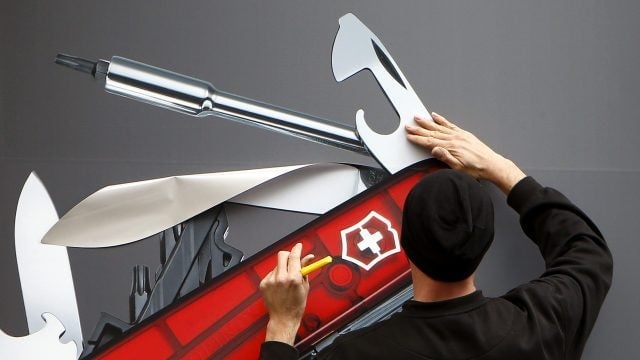Weekend edition—Fretting about inflation, feminist companies, where’s Sheryl Sandberg?
Good morning, Quartz readers!


Good morning, Quartz readers!
There are a lot of things to be stressed about these days: ransomware, climate change, cicadas, the existence of Balenciaga Crocs. But for now, US inflation isn’t one of them.
US consumer prices shot up 5% year-on-year in May, according to data released this week—the steepest such increase since May 2008. Economists had already been predicting prices would surge by around 4.7%, so the actual figure is feeding anxieties that the US is settling into a sustained (and not “transitory”) period of inflation.
Just one hiccup: Details in the data suggest otherwise.
At the heart of the inflation calculation is what is known as the “base effect”—the effect of computing the year-on-year inflation numbers for the past three months by comparing them to the March-April-May period in 2020. In those three months, when the pandemic was sinking its teeth into the US economy, states were locked down, businesses were shut, and supply chains were tangled and knotted. As a result, prices either fell or stayed abnormally low: April 2020, for instance, witnessed a 0.7% drop in prices from the prior month. A year later, those bottomed-out prices are throwing off year-on-year comparisons in March, April, and May 2021.
It’s also worth noting that a third of the overall price rise in May was due to the surge in used car prices: 29.7% as compared to May 2020, the largest such year-on-year increase in nearly half a century. The reason is the same as it was in April: lagging production of new cars because of supply and transportation bottlenecks. Other areas that saw strong price increases, like air travel and hotel bookings, also had abnormally depressed levels last year. Meanwhile in less pandemic-hit sectors, such as food at home or rent, the rise in prices was more tempered.
Unfortunately, you only get to snooze the anxiety for a few more weeks. By June 2020, as the US’s enormous economic stimulus took hold, prices began to rise again. So in early July, when we’re able to compare June 2021 prices to those from last year, we’ll have a fuller, truer picture of inflation—and of how “transitory” it promises to be. —Samanth Subramanian
Five things from Quartz we especially liked
Where in the world is Sheryl Sandberg? Facebook’s COO and former celebrity executive hasn’t completely disappeared from the public eye, but it can feel that way. In fact, that Sheryl Sandberg hasn’t saved Facebook from its recent moral and ethical wreckages, and perhaps has contributed to them instead, has disappointed one-time fans. But in this thought-provoking deep dive, Sarah Todd speaks to some of Sandberg’s closest associates about the many cultural, political, and potentially gendered reasons why the former star’s influence has waned. Read it and you may come away judging Sandberg less harshly. —Lila MacLellan, senior reporter, Quartz at Work
Irish good-bye. The world’s seven wealthiest advanced economies agreed on a global minimum tax rate this week. It’s designed to prevent multinational companies from dodging taxes by moving their profits through tax havens. If fully implemented, the agreement will end the tax rate race to the bottom among advanced economies, but as Samanth Subramanian reports, countries like Ireland that style themselves as unfettered way-stations for global capital will need to take on the hard work of finding real economic development strategies. —Tim Fernholz, senior reporter
Time’s up. Those same seven nations are also among the world’s biggest carbon polluters. Few of them are paying their fair share to fund climate adaptation, and collectively the group is still investing more into fossil fuels than green energy alternatives. If the world is going to avert disaster, Tim McDonnell forcefully argues, it’s time for the G7 to put up or shut up. —Nicolás Rivero, tech reporter
How to run a feminist company. You don’t need to be female to want to overthrow the more toxic aspects of workplace patriarchy. And after reading Lila MacLellan’s look at the inclusive, people-centered practices of two feminist research labs, including eight ideas that can be incorporated by any team or company, you won’t want your own organization to be run any other way. —Heather Landy, executive editor
The vital role of restaurants during a pandemic. Celebrated restaurateur Daniel Boulud is opening a new fine dining restaurant called Le Pavillon in New York City—just one of the many projects he undertook during the tumultuous past year. He tells Anne Quito that he felt a call to service during a time of crisis. “I felt that if all those nurses and doctors can work, maybe we can too.” —Sarah Todd, senior reporter, Quartz at Work
One membership thing that made us 🤳
There are two opposing theories of competition among social media platforms. One holds that social networks are inherently faddish: Kids don’t want to be on the same platforms as their parents, and newer, cooler options are bound to pop up and supplant their predecessors eventually. The other says that social networks are inherently sticky: Everyone wants to go where their friends and their favorite influencers already are, which means that large, established incumbents with lots and lots of users will always have an advantage over upstart rivals.
For years, the second theory had the upper hand: Facebook and its subsidiaries dominated the sector and seemed willing and able to buy up or copy any competitors that crossed their path.

But now the momentum seems to be shifting: New, independent social media platforms are starting to proliferate—and thrive—after a few dormant years. TikTok and Clubhouse are the most visible new entrants, but dozens of other nascent contenders are hoping to follow in their footsteps.
✦ Read more about social media’s next wave in our latest field guide. Start your own next wave of braininess by signing up for a membership—try it free for a week.
We’re obsessed with Swiss army knives

Sharper than ever. A Swiss Army knife can scale a fish, remove a splinter, help start a fire, or sew a ripped seam shut. Its powers are so impressive that a federal judge in California favorably compared an AR-15 rifle to a Swiss Army knife in a ruling reversing the state’s ban on assault weapons. More charmingly, a researcher from the Georgia Tech College of Engineering invoked the multifaceted tool to extoll the many wonders of the elephant trunk. In an age of never-ending technology upgrades and improvements, the “Original Swiss Army knife” is still a best-seller. This Quartz Weekly Obsession is a cut above.
Get the Weekly Obsession email sent to your inbox, for free!
Five things from elsewhere that made us smarter
Boris Johnson the inscrutable. The Atlantic’s Tom McTague has written what may turn out to be the definitive profile of the UK’s prime minister. A political maverick whose family moved 32 times before he turned 15, Johnson is something of an enigma to all—including McTague. But the writer does a better job than most of peeling back Johnson’s layers to reveal some fascinating (and important) contradictions. —Annabelle Timsit, geopolitics reporter
Bill Gates the farmer? You may have learned from a January edition of this very newsletter that Bill and Melinda Gates are the US’s largest private farmland owners. For NBC News, April Glaser dove into the implications of that surprising discovery. The biggest takeaway: Small farmers can’t compete with billionaires like the Gateses, who buy up acreage as an investment and don’t always have the best interests of the community or the environment in mind. —Liz Webber, deputy email editor
Vax with a side of microchip? After I got my Covid-19 vaccine, a friend texted with a joke insinuating that I’d gotten implanted with a microchip. This theory, laughable as it may seem to some, taps into a very real fear among those most reluctant to get the vaccine. But how’d that come to be, anyway? For Reveal, Ike Sriskandarajah follows the strange, winding history of this theory. —Alex Ossola, membership editor
Writing a tragedy by hand. A traditional craft deeply rooted in India’s history, calligraphy has struggled to remain sustainable. Recently, however, it’s in the highest of demands, and for the most terrible of reasons: the many Covid-19 dead need gravestones, and gravestones need inscriptions. For the People’s Archive of Rural India, Amir Malik tells the story of India’s tragic Covid-19 outbreak through the eyes of the calligraphers at one of New Delhi’s biggest cemeteries—giving both a heartbreaking measure of the tragedy the country is living through, and a poetic tribute to an art that’s very much alive. —Annalisa Merelli, reporter
Fake humans. AI is as biased as the data it’s built on. To get around that problem, companies are creating synthetic humans to train algorithms for a variety of tasks, like tracking driver alertness or body movements at self-checkouts, Karen Hao reports for MIT Technology Review. But the creepy-looking digital renditions of people could ultimately make AI even messier. —Ana Campoy, deputy finance and economics editor
Our best wishes for a relaxing but thought-filled weekend. Please send any news, comments, your best calligraphy, and TV pilots featuring Farmer Bill to [email protected]. Get the most out of Quartz by downloading our app and becoming a member. Today’s Weekend Brief was brought to you by Susan Howson.